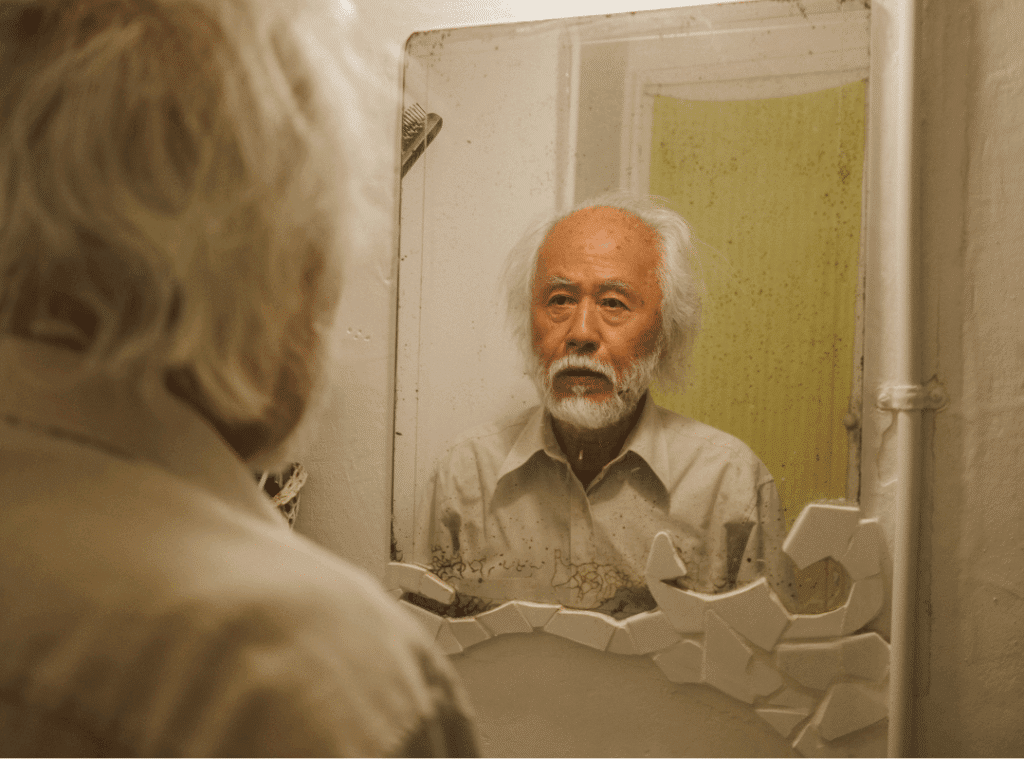When people ask, “Is dementia considered a mental illness?” they are often trying to understand what kind of care and support their loved one may need. The answer is more nuanced than a simple yes or no, and it’s important to understand what dementia is, how it differs from traditional mental illnesses, and what kind of help is available.
Dementia, including Alzheimer’s disease, is a growing concern among aging adults and caregivers. Although it affects memory, reasoning, and personality, it is not traditionally classified as a mental illness. This post explores the definitions, classifications, and symptoms of dementia, as well as the roles healthcare professionals and caregivers play in treatment and support.
To learn more about compassionate care options, visit Westmont of Culver City.
Defining Dementia and Mental Illness
Understanding the question “Is dementia a mental illness or a physical illness?” starts with knowing the differences between the two. Dementia is a progressive neurological disorder that affects cognitive functions like memory, language, and problem-solving. It includes diseases like Alzheimer’s disease, vascular dementia, and Lewy body dementia.
In contrast, mental illnesses refer to conditions like depression, bipolar disorder, or schizophrenia. These are generally characterized by disruptions in mood, thought, or behavior rather than cognitive decline due to physical brain changes. According to the National Institute of Mental Health, mental illnesses often have different causes and treatment pathways.
Understanding these differences is essential. Although symptoms like confusion, depression, or aggression may resemble those seen in mental illness, dementia originates from neurodegenerative damage rather than emotional or psychiatric roots.
Explore more about dementia variations and how they affect treatment outcomes.
The Classification of Dementia
So, is dementia a mental illness, as defined by the DSM-5? According to the Diagnostic and Statistical Manual of Mental Disorders (DSM-5), dementia falls under the category of “Neurocognitive Disorders.” This distinction is significant because it differentiates it from classic psychiatric conditions.
The classification includes several major types:
- Alzheimer’s disease (60–80% of cases)
- Vascular dementia (15–25%)
- Lewy body dementia
- Frontotemporal dementia
Other less common conditions like Creutzfeldt-Jakob disease and Wernicke-Korsakoff syndrome also share dementia-like symptoms, making diagnosis more complex. Understanding these types helps ensure the most effective care strategies are put into place.
Learn how memory care services are tailored to each condition.
Symptoms of Dementia and Their Impact
Cognitive Decline Effects
One of the clearest signs that dementia is not a traditional mental illness is its impact on cognitive function. Patients may struggle to recall recent events, recognize loved ones, or perform tasks they’ve done for years.
This cognitive impairment makes even routine activities overwhelming. Tasks like managing medications, paying bills, or preparing meals may become unmanageable. Recognizing these signs early and addressing them with proper care strategies is crucial for improving quality of life.
Learn more about memory disorder symptoms and early interventions.
Emotional and Behavioral Changes
While dementia is not primarily a psychiatric disorder, emotional symptoms often develop. Patients may show increased irritability, anxiety, depression, or aggression. These changes can lead to misdiagnosis or the mistaken belief that dementia is a mental illness, DSM-classified in the same way as mood disorders.
Recognizing emotional and behavioral shifts is essential. Providing a stable environment, routine, and empathetic care can make a significant difference.
Explore how personalized care approaches support emotional well-being.
Daily Life Challenges
Is dementia a mental illness or a physical illness? The daily life impact suggests it is both cognitive and behavioral symptoms that affect physical independence. Forgetting appointments, wandering, and confusion about time and space are common.
Support tools like calendars, visual reminders, and professional caregiver support can help individuals live more independently while maintaining their dignity.
Additional lifestyle support, like nutrition for dementia, also contributes to symptom management.
Comparing Dementia to Other Mental Illnesses
It’s important not to conflate dementia with traditional psychiatric disorders. While Alzheimer’s disease may include symptoms that resemble mental illness, its cause is rooted in physical changes to the brain.
When you ask, “Is Alzheimer’s a mental illness or a physical illness?”, it’s clear the disease begins as a physical degeneration of the brain. However, it may cause psychological symptoms, blurring the lines for many families.
The difference lies in treatment—psychiatric medications may be used to treat related symptoms, but they do not stop or reverse dementia’s progression.

The Role of Healthcare Professionals in Diagnosis
Diagnosing dementia involves a comprehensive and collaborative medical approach. Physicians, neurologists, psychologists, and geriatricians often work together to assess a patient using multiple tools:
- Medical History Review: Evaluates genetics, medications, and existing conditions.
- Cognitive Tests: Measure memory, attention, language, and problem-solving.
- Brain Imaging and Blood Tests: Identify physical damage or rule out other causes like stroke or tumors.
Clear diagnosis supports effective treatment—early diagnosis is key in managing dementia’s progression.
Treatment Approaches for Dementia
Medication Management Strategies
While no cure exists, medications can slow progression and manage symptoms. Drugs like cholinesterase inhibitors and memantine may be prescribed. To enhance effectiveness:
- Maintain consistent medication schedules
- Monitor for side effects
- Educate caregivers on proper usage
Healthcare providers may also prescribe antidepressants or antipsychotics for related symptoms, though with caution.
Supportive Care Approaches
In addition to medications, non-pharmacologic interventions can dramatically improve quality of life. These may include:
- Music therapy
- Pet therapy
- Reminiscence activities
- Physical movement and exercise
Support also extends to caregivers, who benefit from counseling, respite care, and dementia education resources.
Visit the Alzheimer’s Association Caregiver Center for free support tools and information.
Living With Dementia: Quality of Life Considerations
Despite the challenges, those with dementia can lead fulfilling lives. Here’s how:
- Foster relationships with friends and family for emotional support
- Participate in community programs to reduce isolation
- Establish routines to maintain a sense of normalcy
Communities like Westmont of Culver City are specially designed to create secure, supportive environments that empower individuals.
Rethinking Dementia: More Than a Diagnosis
So, is dementia considered a mental illness? Not officially, but it affects the mind, body, and emotions in ways that resemble mental disorders. It’s a unique condition that challenges conventional classification, sitting at the intersection of physical and psychological health.
Understanding the difference matters. It helps you seek appropriate care, reduce stigma, and provide informed, compassionate support to your loved ones.
If you or someone you love is navigating the challenges of dementia, Westmont of Culver City is here to support you. Call us at 310-736-4118 or schedule a tour to explore our memory care services today.
Dive into the vibrant life our Westmont communities have to offer.Find Where You Belong
Frequently Asked Questions
Is dementia a medical or mental illness?
Dementia is considered both a medical condition and a mental illness, depending on the context. Medically, it refers to a group of symptoms affecting memory, thinking, and social abilities caused by physical changes in the brain. From a psychiatric perspective, dementia is often classified under mental disorders because of its impact on cognition and behavior. It is listed in diagnostic manuals like the DSM-5 under neurocognitive disorders. Therefore, it straddles both the medical and mental health fields.
Is dementia classed as a mental disability?
Yes, dementia is commonly recognized as a mental disability because it significantly impairs cognitive functions such as memory, communication, and decision-making. These impairments can interfere with a person’s ability to perform daily tasks independently. As a result, many legal systems and support programs categorize dementia under mental disabilities to provide appropriate services and accommodations. This classification helps in accessing disability benefits and long-term care options. However, it’s important to note that the degree of disability can vary depending on the stage and type of dementia.
Is dementia a mental incapacity?
Dementia can lead to mental incapacity, especially in its moderate to severe stages. Mental incapacity means a person is unable to make informed decisions or understand the consequences of their actions. Individuals with dementia may struggle with tasks like managing finances, giving medical consent, or understanding legal documents. In such cases, legal tools like a power of attorney or guardianship are often put in place. However, not all people with dementia are mentally incapacitated at all times, especially in the early stages.








